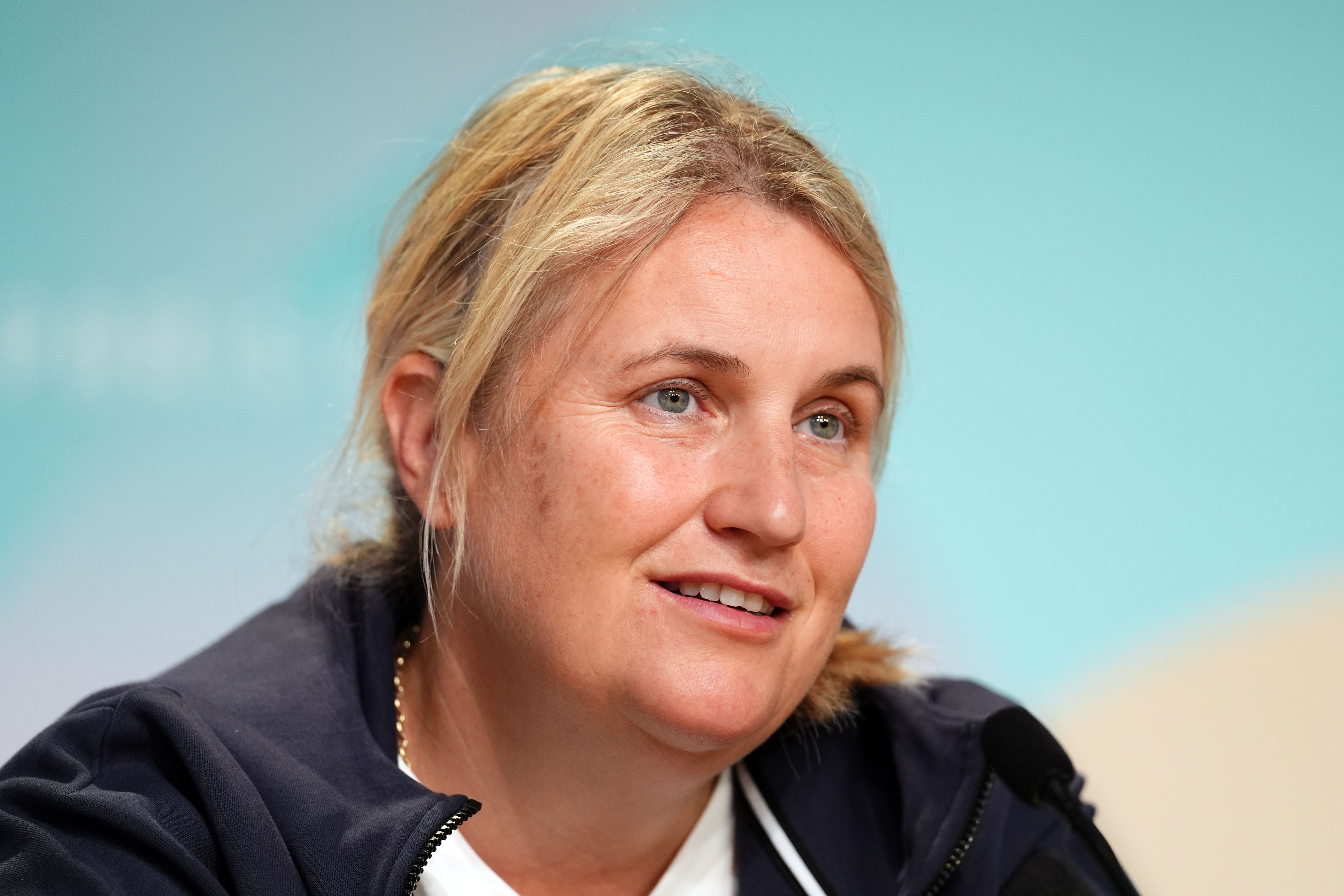Emma Hayes feels female coaches do not get as many chances as male counterparts
While the WSL is densely populated with top English players, just two English women are in charge of top-flight sides this season.

Your support helps us to tell the story
From reproductive rights to climate change to Big Tech, The Independent is on the ground when the story is developing. Whether it's investigating the financials of Elon Musk's pro-Trump PAC or producing our latest documentary, 'The A Word', which shines a light on the American women fighting for reproductive rights, we know how important it is to parse out the facts from the messaging.
At such a critical moment in US history, we need reporters on the ground. Your donation allows us to keep sending journalists to speak to both sides of the story.
The Independent is trusted by Americans across the entire political spectrum. And unlike many other quality news outlets, we choose not to lock Americans out of our reporting and analysis with paywalls. We believe quality journalism should be available to everyone, paid for by those who can afford it.
Your support makes all the difference.Emma Hayes is convinced female coaches are regularly afforded a shorter rope than their male counterparts.
The United States women’s national team boss enjoyed a 12-season stint at Chelsea, but her longevity remains an anomaly in a league where homegrown female bosses are an endangered species.
While the WSL is densely populated with top English players, just two English women are in charge of top-flight sides this season after all four summer vacancies were filled by candidates from outside the United Kingdom.
Hayes told the PA news agency: “I don’t actually think it’s just for the UK. I think what happens is, when a woman coaches at the highest level, and they’re let go, I don’t think we get as many chances as male coaches, for whatever reason.
“So if there is a dropout, it’s probably because those opportunities aren’t happening, and also it’s a really tough job to do.
“You might not get paid a lot of money, you might have childcare to manage, there’s a lot more that goes into it, being a woman, that’s never actually factored in.”
Laura Kaminski will make her top-flight coaching debut when she leads out newly-promoted Crystal Palace against Tottenham, formerly employers to West Ham boss Rehanne Skinner – the only other Englishwoman in charge of a WSL side.
This season is the first the WSL and Championship will operate under their own independent company, Women’s Professional Leagues Ltd.
Asked about plans to develop more English coaching talent, WPLL CEO Nikki Doucet said: “I think our teams will want the best managers, period. The question is, can the best managers also be local?
“And so I’d say we care about it, we think about it, and I think the FA cares about it and thinks about it as well, and that would be one of the things – as we’ve brought on a chief football officer – that as we think about that remit and what that role is, that ‘development’ would come under that, both for the talent pathway and also coaching.”
Hayes was speaking at an event promoting the new McDonald’s Makin’ It x Kick It Out coaching bursaries, which the FIFA Best women’s coach winner hopes will open doors to a broader range of prospective coaching talent.
She said: “Coach education and qualifications are cost prohibitive, yet there’s still this expectation that people should be able to access great grassroots football coaches for free.
“There are so many amazing volunteers who work tirelessly in football, and I think more needs to be done to invest in developing these leaders and champion them for the wonderful work that they do.
Start asking the questions about what it is you’re failing with
“We have to do a better job of being able to access women in the ways that will resonate more with them, as opposed to men working in football.”
When it comes to hiring and retaining more homegrown female talent at elite level, Hayes’ advice to Doucet and her team is similar: “Start asking the questions about what it is you’re failing with.
“I’ve always felt that how we get women into sport, we have to think about it differently, and I think a piece of work should be done around that.”
Debates about the best boss in women’s football routinely comes down to two names: Hayes and England head coach Sarina Wiegman.
When the Lionesses announced they would host the USA at Wembley in November, the ensuing excitement focused more on the women in the dugout than the players on the pitch.
It is a long-anticipated battle that could be catalytic in inspiring more women to start their own coaching journey.
Hayes added: “I love Sarina as a person and as a coach. I admire all of her achievements, and she’s someone I’ve built a good relationship with over the years.
“We’re very supportive of each other, but we’re competitive people, so come kick-off it will be a hugely competitive game where we both want to win.
“I think it’s pretty fantastic. The home of football, the European champions getting to face the Olympic gold medallists, led by two females.”
::Emma Hayes is backing the new McDonald’s Makin’ It x Kick It Out coaching bursary helping hundreds of young people to start a career in football coaching. Find out more @McdonaldsMakinit